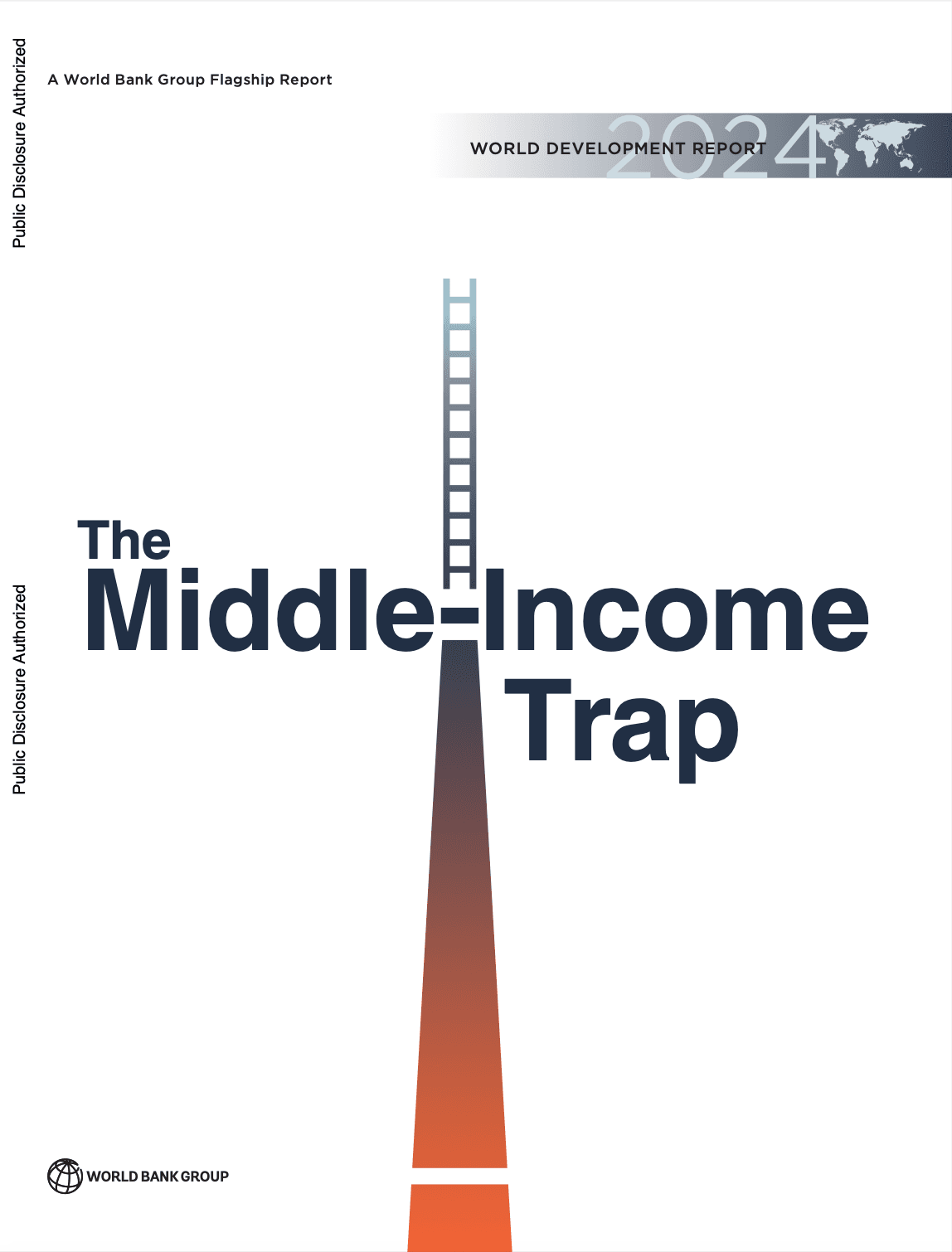The World Development Report released in October 2024 by the World Bank examines the Middle-Income Trap, investigating the reasons many middle-income nations fail to achieve high-income status. The study indicates that although middle-income economies have notably reduced poverty, their rise to high-income status has been sluggish and increasingly difficult due to structural limitations, escalating debt, demographic changes, geopolitical conflicts, and climatic issues.
The report introduces a three-phase strategy—Investment, Infusion, and Innovation (3i strategy)—as a framework for escaping the trap. First, countries must increase investment in capital and infrastructure. Then, they need to infusetechnologies and business models from global markets into their domestic economies. Finally, they should transition to innovation, developing homegrown advancements rather than relying on imported knowledge.
In addition to economic policies, the report stresses the importance of reducing social immobility and gender inequalities, noting that unequal access to opportunities hinders productivity and innovation. Policy recommendations focus on reforming regulations, improving education and workforce skills, increasing competition, and reducing political barriers to economic transformation.
Ultimately, the report concludes that without bold reforms, many middle-income countries risk remaining stuck in economic stagnation for decades. It urges policymakers to discipline incumbents, reward merit, and capitalize on crises to create conditions for sustainable, high-income growth.





